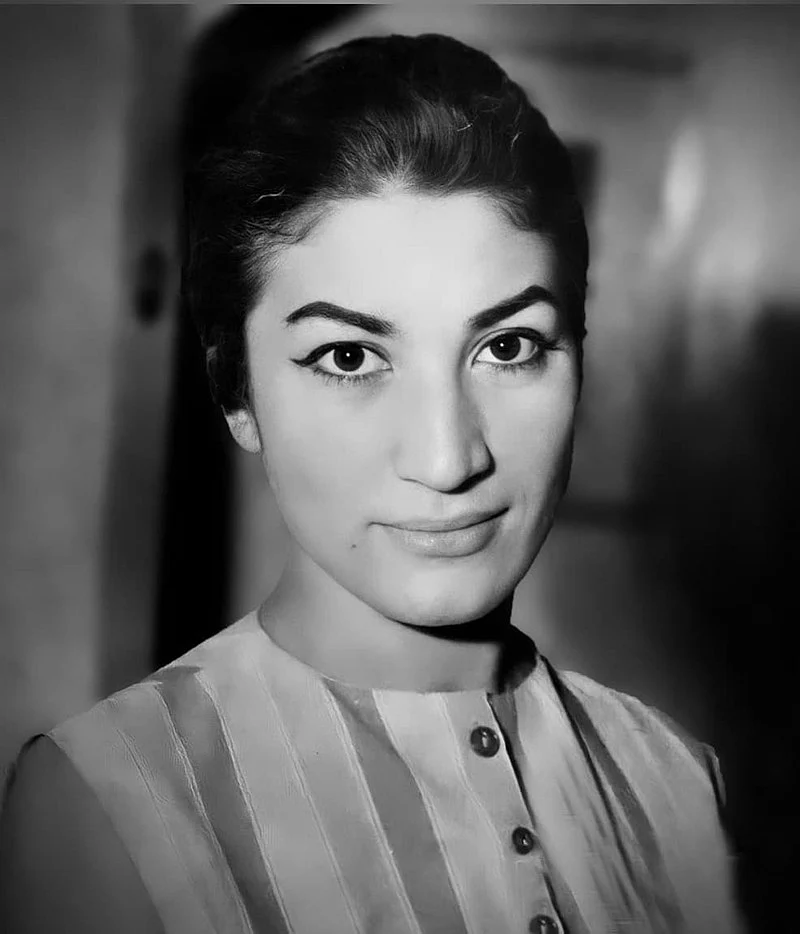Poems from Forough Farrokhzad translated from Persian by Elizabeth Gray, Jr.
Another Birth (Tavallodī Dīgar)
My whole being is a dark verse
that by repeating you in itself
will carry you to the dawn of eternal blossoming and growth
In this verse I sighed you
ah, in this verse
I grafted you to tree and water and fire
◊ ◊
Maybe life
is a long street in which every day a woman with a basket passes by
Maybe life
is a rope with which a man hangs himself from a branch
Maybe life is a young child coming home from school
Maybe life is lighting a cigarette in the languid pause between making love and making love again
or the distracted gait of a passer-by
who lifts his hat from his head
and with a meaningless smile says to another passer-by, “Good morning”
Maybe life is that suspended moment?
in which my gaze annihilates itself in the pupils of your eyes
and in this moment there is a feeling that I will mix
with the moon’s understanding and the acceptance of darkness
In a room the size of a loneliness
my heart
the size of a love
looks for simple excuses for happiness
to the beautiful wilting of the flowers in the vase
to the sapling you planted in the garden of our house
and to the song of the canaries
who sing the size of a window
Ah…
This is my lot
This is my lot
My lot
is a sky that the pulling of a curtain takes away from me
My lot is to descend an abandoned stairway
and join something rotting and in exile
My lot is a walk stained with grief in the garden of memories
and to die grieving for the voice that says to me:
“I love
your hands.”
I bury my hands in the garden
I will grow, I know, I know, I know
and swallows will lay their eggs
in the hollow of my ink-stained fingers
I hang twin red cherries
over my ears as earrings
and stick dahlia petals on my fingernails
There is an alleyway where
the boys who were in love with me
with the same tousled hair and skinny necks and spindly legs
are still thinking of the innocent smiles of a girl who was carried away one night
by the wind
There is an alleyway that my heart
has stolen from the neighborhoods of my youth
The journey of a form along the line of time
a form impregnating the barren line of time
a form conscious of an image
that returns from a feast in a mirror
And thus it is
that someone dies
and someone remains
◊ ◊
No fisherman will find a pearl in the humble gutter that pours into a pit
I
know a sad little fairy
who lives in an ocean
and plays her heart out softly, softly
on a pennywhistle
a sad little fairy
who dies with a kiss at night
and is born with a kiss at dawn
Sin (Gonāh)
I sinned a sin full of pleasure
in an embrace that was warm and fiery
I sinned in arms that were hot
and vindictive and made of iron
In that dark and silent sanctuary
I looked into his eyes full of secrets
My restless heart trembled in my chest
at the demands of his hungry eyes
In that dark and silent sanctuary
I sat agitated at his side
His lips poured violent desire across my lips
I was freed from my mad heart’s grief
I whispered words of love into his ear:
I want you, O my love
I want you, O life-giving embrace
You, O my mad lover
The passion in his eyes lit a flame
Red wine danced in the cup
In the soft bed my euphoric body
trembled on his chest
I sinned a sin full of pleasure
beside a dazed and trembling body
O Lord, what do I know about what I did
in that dark and silent sanctuary
Gift (Hedyeh)
I speak from the limit of night
I speak from the limit of darkness
and of the limit of night
If you come to my house, O kind one, bring me a lamp
and a tiny opening through which
I might look at the crowd in the happy street
The Wind Will Carry Us (Bād Mā Rā Khāhad Bord)
Alas, in my little night
the wind has a tryst with the leaves of the trees
In my little night, there is the dread of devastation
Listen
Do you hear the gusts of darkness?
Excluded, I watch this happiness
I am addicted to my despair
Listen
Do you hear the gusts of darkness?
In the night, something is happening now
The moon is red and agitated
and above this roof that fears it will crumble at any moment
clouds like a crowd of mourners
wait for the moment to rain
A moment
then nothing
Beyond this window night shudders
and the Earth
ceases to spin
Beyond this window an unknown
is watching you and me
O you, green from head to toe
put your hands, like a burning memory, in my lovestruck hands
and entrust your lips, like a warm feeling of existence
to the caresses of my lovestruck lips
The wind will carry us with it
The wind will carry us with it
Credit: “Sin,” “The Wind Will Carry Us,” “Gift,” and “Another Birth” by Forugh Farrokhzad, translated by Elizabeth T. Gray, Jr., from LET US BELIEVE IN THE BEGINNING OF THE COLD SEASON, copyright ©2022 by Elizabeth T. Gray, Jr. (translation). Used by permission of New Directions Publishing Corp.
Forough Farrokhzad (1934–1967) was born the third of seven children in Mazandaran, north of Tehran. Drawn to reading and writing poetry as a child, she dropped out of high school to study painting and dressmaking at a technical school. At age sixteen she fell in love with her mother’s cousin; they married, moved to a provincial town, and had a son. During her marriage, she worked as a seamstress and wrote the poems of her first collection, The Captive (1955). In the fall of 1955, she divorced her husband, relinquished all rights to her son, and moved to Tehran. In the fall of 1955, she had a nervous breakdown and underwent electroshock therapy. Three more poetry collections followed: The Wall (1956), Rebellion (1958), and Another Birth (1964). She also translated the work of George Bernard Shaw and Henry Miller; lived in Rome and Germany; returned to Tehran and worked at a literary magazine and at the film studio of Ebrahīm Golestān; studied film production in England; and made a groundbreaking documentary, The House Is Black (1962), about a leper colony in northeastern Iran. She died in a car accident in 1967. Her posthumous collection of late poems Let Us Believe in the Beginning of the Cold Season was published in 1974.

Elizabeth T. Gray, Jr. is the author of the poetry books Salient (New Directions, 2020) and Series | India (Four Way Books, 2015) and the translator of Wine and Prayer: Eighty Ghazals from the Diwan of Hafiz. Let Us Believe in the Beginning of the Cold Season, her translations of selected poems of Forough Farrokhzad published by New Directions in 2022, was a finalist for the 2023 PEN Prize for Poetry in Translation. Her work has appeared in The Paris Review, Modern Poetry in Translation, Poetry International, Dispatches from the Poetry Wars, Hyperallergic, Little Star, Talisman, The Harvard Review, The New England Review, Antaeus, The Kenyon Review, and elsewhere, and she has served as Guest Editor of Epiphany and The New Haven Review. She serves on the Boards of The Beloit Poetry Journal, Kimbilio Fiction, Friends of Writers, and the Abdorrahman Boroumand Center for Human Rights in Iran, and from 2009-2015 served as Chair of the Board of the Iran Human Rights Documentation Center. She holds a B.A. and J.D. from Harvard University and an MFA from the Program for Writers at Warren Wilson College. She lives in New York City. www.etgrayjr.com.
